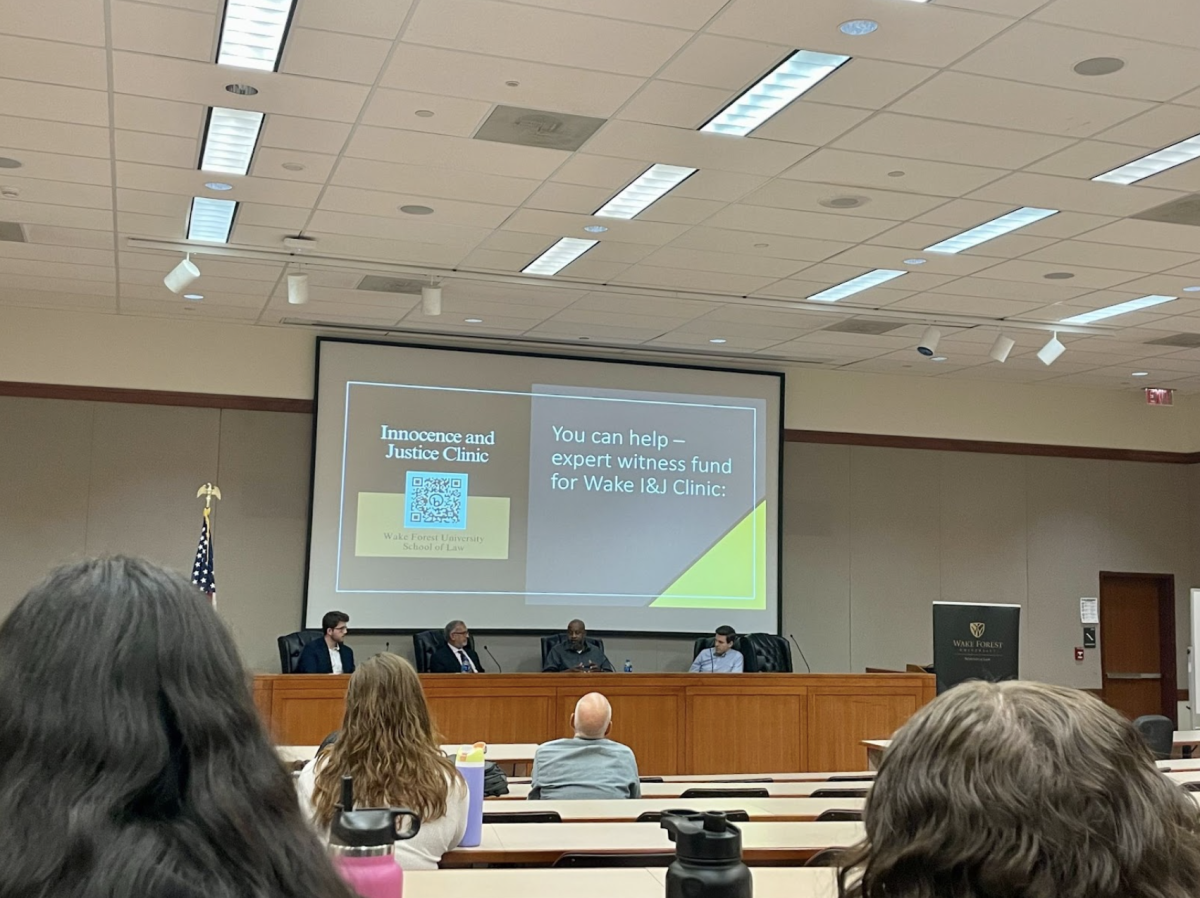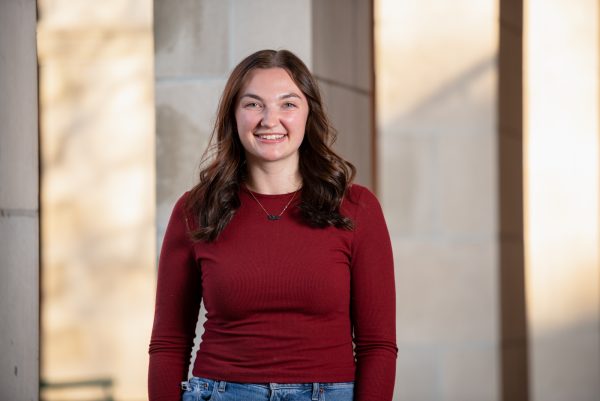Approximately 3,388 individuals have been exonerated in the U.S. since 1989. For more than 30 years, Kelvin Alexander has been working to add his name to this list.
“I went [to prison] with a life sentence, but I knew that wasn’t gonna be my final chapter,” Alexander said.
Alexander was released on parole in 2020 — and on Oct. 2, which marked the 10th annual International Wrongful Conviction Day, he spoke publicly about his case and eventual release for the first time in a panel event hosted by the Society for Criminal Justice Reform at the Wake Forest School of Law. He was joined by Director of the Wake Forest Innocence and Justice Clinic and Professor of Clinical Law Mark Rabil and Assistant Public Defender Carson Smith.
“You have to be careful with that kind of stuff and have respect for what it takes to share that message and that story,” said Smith, who has represented Alexander since 2015. “Who knows where we go from here — but it certainly felt like a good time to tell the story.”
Rabil opened the panel, explaining that Alexander’s resilience is the heart of his story.
“This is about resilience and the fact that Kelvin, 30 years after being arrested, is still able to not only maintain his optimism, but also be a support for the people around him,” Rabil said.
The panelists discussed Alexander’s case in detail. In 1993, Alexander, a 21-year-old Black man, pled guilty to the murder of Carl Boyd which took place in 1992 at the Amoco filling station at which Boyd worked in Norlina, N.C. After pleading guilty to second-degree murder and spending 28 years in prison, Alexander was released on parole in 2020.
Citing withheld evidence as the cause of wrongful conviction, the team has filed motions to test DNA on various pieces of evidence. According to Rabil, there is no physical evidence connecting Alexander to the case — the alleged eyewitness made three statements differing in content and could not identify Alexander in a line up.
While he was in prison, Alexander worked tirelessly to overturn his sentence.
“I worked hard every day,” Alexander said. “I filed motions myself, I filed lawsuits, I did everything. I was preparing myself the whole time I was [in prison] because I knew I was coming out of it.”
One of these efforts included writing to Wake Forest’s Innocence and Justice Clinic in 2012. He recalled his initial meeting with Rabil and six other attorneys in 2013, saying that the team gave him the confidence to move forward.
“I knew Mark and them would always bring me some good,” Alexander said. “If something was going on, or they were looking at something, they would let me know. That made me feel good. Like I said, it lifts you up. It takes you above the stuff that is going on around you.”
With the help of Rabil, Smith and the Innocence and Justice Clinic, Alexander walked out of prison on Oct. 22, 2020.
Despite his long journey to parole, Alexander remained hopeful. He shared that not only did he work to free himself, but also to free his family.
“I didn’t allow my mind to be locked away with my body,” Alexander said. “That’s the main thing — you’ve got to keep pushing forward. Look for a better day because it’s gonna be a better day. It’s gonna be a better one as you keep pushing a little forward.”
He continued: “I’ve seen people fall into a dark spot…I was determined not to do that because not only was I locked up, but my family was locked up, as well. I couldn’t fail them, so I did everything I could. Even on my bad days, they thought I still had good days. I didn’t want them to worry about me. I wanted them to always think I was good. That was the only way I could take care of them.”
First-year law student Will Boyce expressed that the panel offered both practical and emotional takeaways.
“It’s moving to hear people’s personal stories dealing with the justice system,” Boyce said. “More practically, I got information about how real some injustices are, how sad [they are], but also how frequently things as bad as this happen.”
Alexander, Smith and Rabil continue to fight to overturn Alexander’s conviction. In an effort not to jeopardize the ongoing investigation, the team shared limited information. However, when asked about their next steps, Rabil offered his ultimate goal.
“The truth,” Rabil said.

















Susan Thompson • Oct 22, 2024 at 7:35 am
Some input from the prosecutors in this case could have shed some light on why Mr. Alexander’s guilty plea and sentence were appropriate.
Lynda Monroe • Oct 11, 2023 at 10:20 am
I am so proud of Mr. Alexander, I had a chance to meet him during his incarceration and as he stated, he did not allow prison to define him. Praying for his justice and receiving what he rightfully deserves. Never give up.